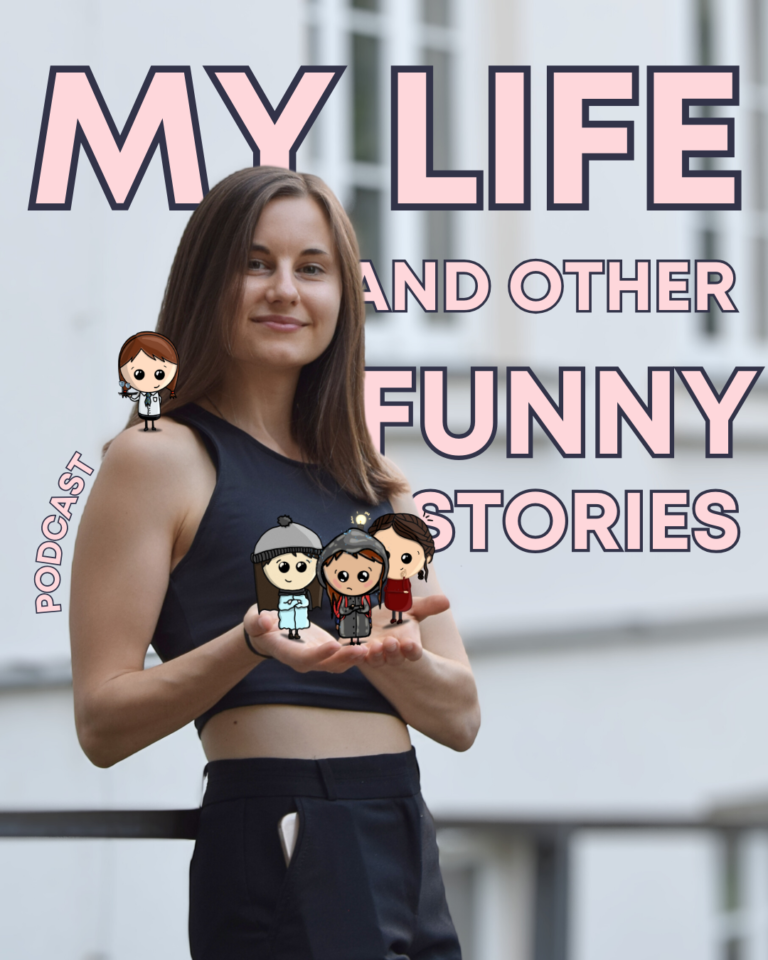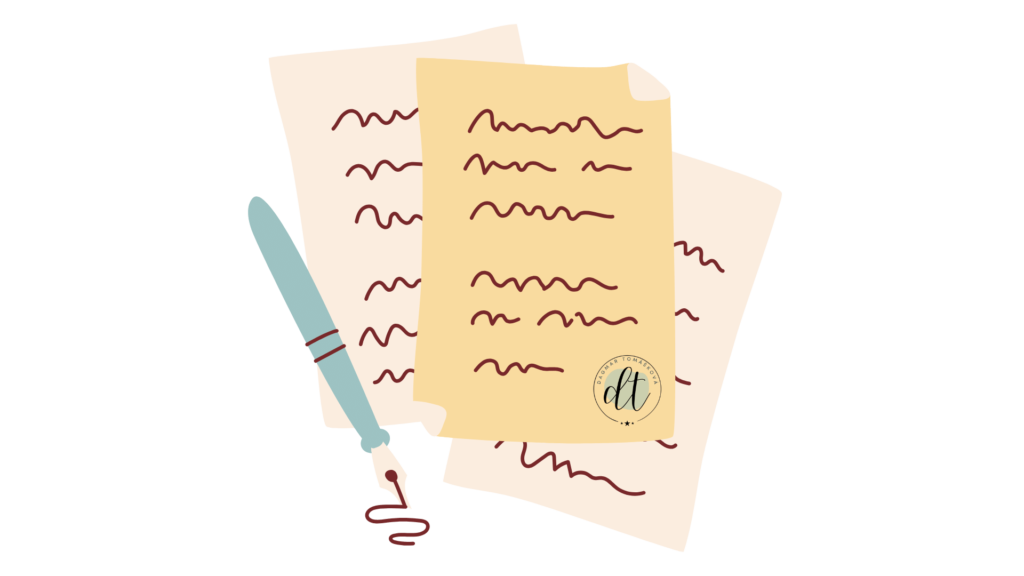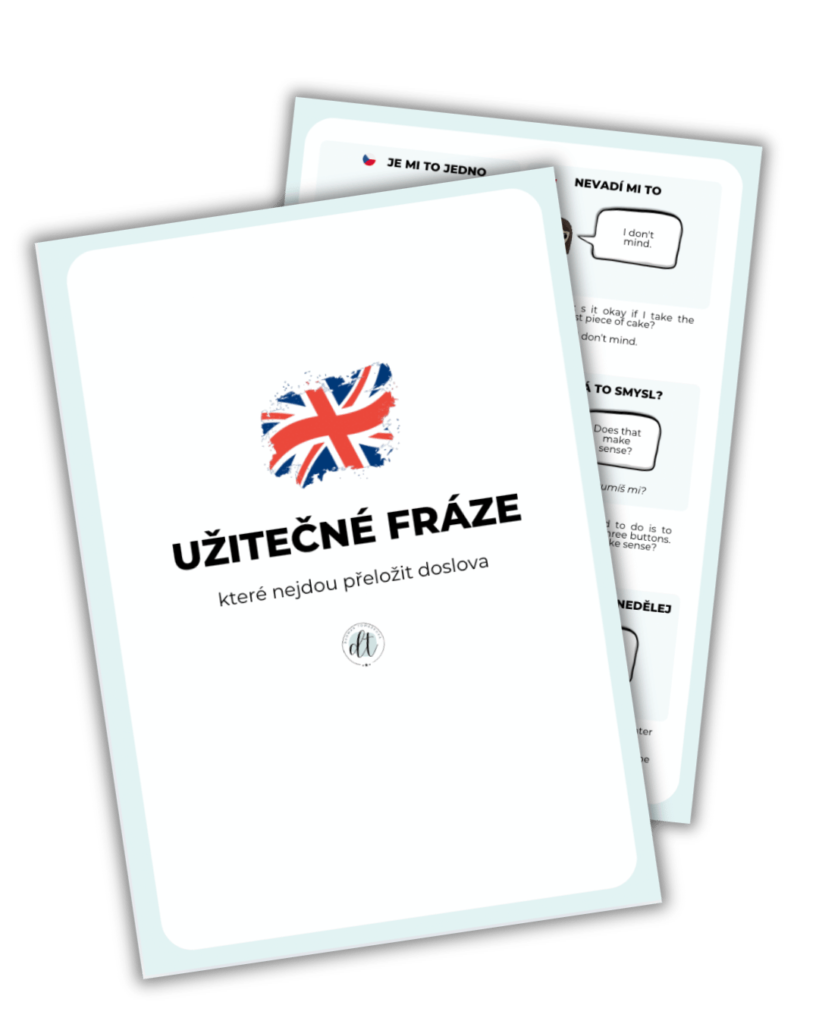
Ep.65: Can You Translate These SUPER USEFUL Phrases Into English? Quiz Yourself!

Today we’re doing a fun quiz episode. I’ll give you a situation in which you should use a certain phrase in English that cannot be translated literally in the Czech. I will always say that phrase in Czech, and you’ll have three seconds to think of the best English translation, Let’s see how many you can guess correctly! Sometimes there will be many more ways to respond or translate the phrase, I will always offer you one option but if you have other ideas, you can always write them down and write me your answers on Instagram!
LISTEN TO THE EPISODE HERE:

PDF WITH PHRASES HERE:
(klikni na obrázek)
Quizlet set najdeš TADY!

WRITTEN TRANSCRIPTION OF THE PODCAST
Hello and welcome to my podcast My Life and Other Funny Stories. My name is Dagmar Tomášková, I am an English tutor and coach and I created this podcast for English students who want to get better in their oral comprehension. As always you can find the transcription of this episode and vocabulary list in the notes of the podcast.
Before I start, I just want to say that I will have some space for English coaching students from the beginning of the year, in January. I haven’t had spaces for the whole year, the last time I was offering my coaching was in January 2024. So if you want to work with me, improve your English, and really achieve your goals in 2025, write me a message.
Okay, today we’re doing a fun quiz episode. I’ll give you a situation in which you should use a certain phrase in English that cannot be translated literally in the Czech. I will always say that phrase in Czech, and you’ll have three seconds to think of the best English translation, Let’s see how many you can guess correctly! Sometimes there will be many more ways to respond or translate the phrase, I will always offer you one option but if you have other ideas, you can always write them down and write me your answers on Instagram!
Also, I prepared a really nice PDF with these phrases where you have it translated into Czech with examples and also I created a Quizlet set so you can practice them. You will find all of this in the transcript.
Alright, let’s go.
Question 1
Your friend gives you a choice of teas, they say: “Which tea do you want? Fruit tea or green tea?” You’re okay with either, so you want to say “je mi to jedno.” How do you respond?
I’ll give you three seconds to think about it…
Answer: “It doesn’t matter.”
In English, “It doesn’t matter” is a nice way to say that you’re open to either choice without sounding indifferent. Of course you could respond differently, as I said, for example “both are fine” when you want to say that your friend can choose.
Question 2
You are with your friend who cooked dinner for you. You want to wash the dishes but they say: “No, don’t do it, you are the guest, I will do it later.”. You want to respond: “Nevadí mi pomýt nadobí”. How do you say it?
Three seconds…
Answer: “I don’t mind washing the dishes.”
In English, “I don’t mind” is a polite way to show that you’re flexible and that you are not bothered by the situation or subject. You can say it when someone asks if something is okay with you. For example: “Is it okay if I take the last piece of cake?” and you can respond: “I don’t mind.”
Question 3
You are talking to your colleague at work and they say: “Okay, I will do this part of the work and you will finish the rest, what do you think?”. And you want to respond: “Jo, to je fér”. How do you respond?
Three seconds…
Answer:A good phrase to use is “Fair enough.”
In English, “Fair enough” is a casual way to show you see their point of view. It’s like saying, “Yeah, that makes sense to me.” It’s a friendly way to show understanding.
Question 4
Imagine you’ve just explained something to a friend, and you want to check if they understand. In Czech, you might say “dává to smysl?” What would you say in English?
Three seconds…
Answer: “Does that make sense?”
In English, “Does that make sense?” is used to check if someone understands or if something is clear. It’s both logical and friendly. In Czech we are “giving sense” (By that I mean “dávat smysl”) in English we are “making sense”.
Question 5
Someone offers you another slice of cake, but you’re already full. You want to politely decline, similar to saying “ne, děkuji.” What’s the best English phrase?
Three seconds…
Answer: “I’m good, thanks.”
In English, “I’m good, thanks” is a polite and casual way to say “no, thank you.” It feels a bit friendlier than just saying “no, thanks.”
Question 6
Imagine your friend apologizes for something small, like spilling a little water. In Czech, you might say “nic si z toho nedělej.” How would you reassure them in English?
Three seconds…
Answer: “No worries.”
In English, “No worries” means, “It’s totally okay.” It’s a relaxed way to tell someone not to stress about it.
Question 7
You’re at a gathering and someone offers you a drink, but you’re not interested. Instead of just saying “no,” you want to decline politely, like saying “to není pro mě” or “to vynechám”. How would you say that?
Three seconds…
Answer: “I’ll pass.”
In English, “I’ll pass” is a casual way to decline an offer, like saying, “Thanks, but I’ll skip this one.”
Question 8
Let’s say you are waiting for your friend to get ready and they are feeling rushed. You want to tell them they don’t need to hurry. In Czech, you might say “nespěchej” nebo “klidně si dej na čas”. How could you say that in English?
Three seconds…
Answer: “Take your time.”
In English, “Take your time” is a kind way to tell someone to relax and not feel pressured. It’s a gentle reminder that there’s no rush.
Question 9
Your friend suggests going to a movie you’re not really interested in. In Czech, you might say “moc mě to nebere.” How would you politely express this in English?
Three seconds…
Answer: “I’m not really into it.”
In English, “I’m not really into it” is a polite way to say that something isn’t your favorite, but you don’t mind if others want to go.
Question 10
A friend brought you a muffin from your favorite bakery and you want to let them know it really brightened your day. In Czech, you might say “udělals mi radost.” How could you express that in English?
Three seconds…
Answer: “You made my day.”
In English, “You made my day” is a warm way to say someone brought you joy. It’s like telling them their kindness really mattered to you.
And that is all for today.
Thank you so much for listening to this episode and don’t forget that you can find the transcription and vocabulary list in the notes. Also, I made a PDF where you have all these phrases written with examples and also a Quizlet set so you can practice them. The link is in the description. Please give it a five-star rating if you liked it and I will see you next time, bye-bye.

VOCABULARY LIST
to offer – nabídnout
to achieve your goals – dosáhnout cílů
literally – doslova
option– možnost
write it down – poznamenat si něco
indifferent – apatický/ je vám to jedno
to be bothered by something – něco ti vadí
understanding – pochopení
to check – zkontrolovat
clear– jasný
friendlier – přátelštější
decline– odmítnout
to feel rushed– cítit se uspěchaně
to hurry – pospíchat
to be pressured – cítit se pod tlakem
to brighten – rozjasnit / rozzářit
to matter – záležet (it matters to me = záleží mi na tom)
